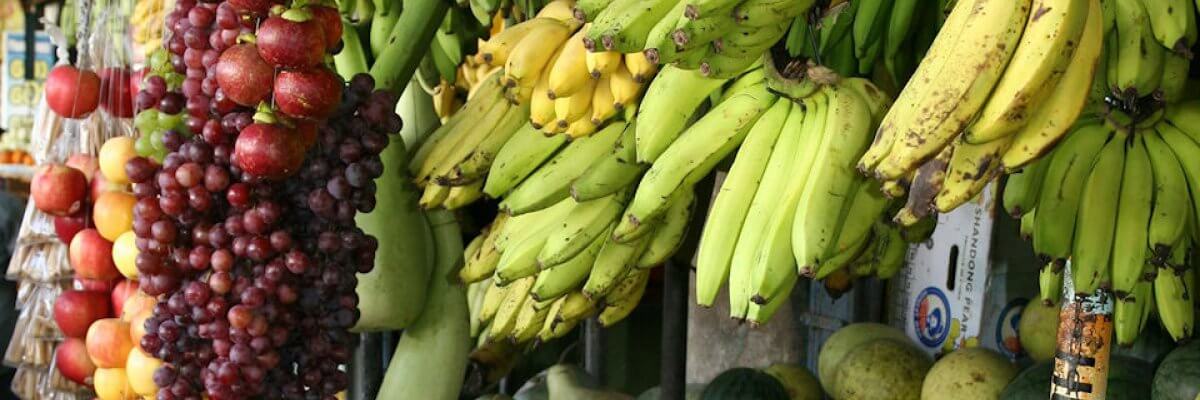Then Jesus told this story: “A man planted a fig tree in his garden and came again and again to see if there was any fruit on it, but he was always disappointed. Finally, he said to his gardener, ‘I’ve waited three years, and there hasn’t been a single fig! Cut it down. It’s just taking up space in the garden.’ “The gardener answered, ‘Sir, give it one more chance. Leave it another year, and I’ll give it special attention and plenty of fertilizer. If we get figs next year, fine. If not, then you can cut it down.’” Luke 13:6–9 (NLT)
How do we know when it is time to give up on something or someone? Impatience may be a modern trait, but I suspect it has been a characteristic of human nature for a long time. What can we learn from this parable to help us as leaders not to give up prematurely?
Why does Luke include this parable instead of the cursing of the fig tree? (Matthew 21:18-22; Mark 11:12-14, 20-25). When things do not go how we would like them to, it is tempting to give up and move on to something else. It is possible to wait too long and become stagnant and hopelessly optimistic, but what factors should we consider?
Who Is Who?
As we learn from this story that Jesus told, it is vital to understand who might be represented by the various characters. If we see God as the man who planted a fig tree in his garden, then who does the gardener embody?
We have every indication from Scripture that God is patient. The Lord isn’t really being slow about his promise, as some people think. No, he is being patient for your sake. He does not want anyone to be destroyed, but wants everyone to repent. 2 Peter 3:9 (NLT)
It seems possible that God is the gardener who desires to see good fruit in us, patiently waiting for us to repent. If so, who planted the fig tree? Paul gives us this perspective:
Each of us did the work the Lord gave us. I planted the seed in your hearts, and Apollos watered it, but it was God who made it grow. It’s not important who does the planting, or who does the watering. What’s important is that God makes the seed grow. 1 Corinthians 3:5–7 (NLT)
Impatience is a human characteristic, so we may represent the one who planted the fig tree. We want to see fruit in people’s lives, particularly in those in whom we have invested our time and energy. There may come a time to give up on someone, but God is asking us to be patient a little longer.
Patience for Me, But Not for Thee?
But God had mercy on me so that Christ Jesus could use me as a prime example of his great patience with even the worst sinners. Then others will realize that they, too, can believe in him and receive eternal life. 1 Timothy 1:16 (NLT)
In Matthew 18, Peter asked how often he should forgive someone who sins against him. Peter thought seven times would be adequate, but it wasn’t even close. Jesus told the story of a man who owed an outstanding debt far beyond his ability to repay.
The man begged the king for patience, and the master, pitying him, forgave the debt. Paul put himself in that position, acknowledging that he was the worst of sinners. Paul never forgot the mercy that God showered upon him. He offered himself as a “prime example of God’s great patience.”
In contrast to the man who owed an outstanding debt and then exhibited no mercy toward someone who owed him a small debt, we must extend the same patience to others that God has extended to us.
In light of the great mercy that our Lord has lavished upon us, how can we not plead with God to give us a little more time to fertilize and water those who are in the fields where God has placed us?
Abiding in the Vine
The more you grow like this, the more productive and useful you will be in your knowledge of our Lord Jesus Christ. But those who fail to develop in this way are shortsighted or blind, forgetting that they have been cleansed from their old sins. 2 Peter 1:8–9 (NLT)
Our growth and fruitfulness are only possible as we abide in Christ. Somewhere along the line, someone planted a good seed in us that began to grow while others watered and nurtured us in our spiritual journey.
In turn, we have planted the good seed of the word of God in others, and sometimes growth is uneven, perhaps even stunted. No one can afford to think that spiritual growth is sustainable apart from abiding in Christ:
Remain in me, and I will remain in you. For a branch cannot produce fruit if it is severed from the vine, and you cannot be fruitful unless you remain in me. John 15:4 (NLT)
We can never afford to think that, at some point, we become self-sustainable. We may mature at different rates. Some of us take longer to produce fruit in our lives. We must be grateful for God’s patience toward us. God leaves us here to produce fruit that will bring him glory: When you produce much fruit, you are my true disciples. This brings great glory to my Father. John 15:8 (NLT)
Every true disciple of Christ longs for the day we will see him face-to-face. In a world that is chaotic and full of sin, it is tempting to plead with God to cut the “fig tree” down and bring us home. But if we have the heart of the Father, we plead, “Give us another year,” patiently hoping to see more fruit.
Steve Ekeroth
